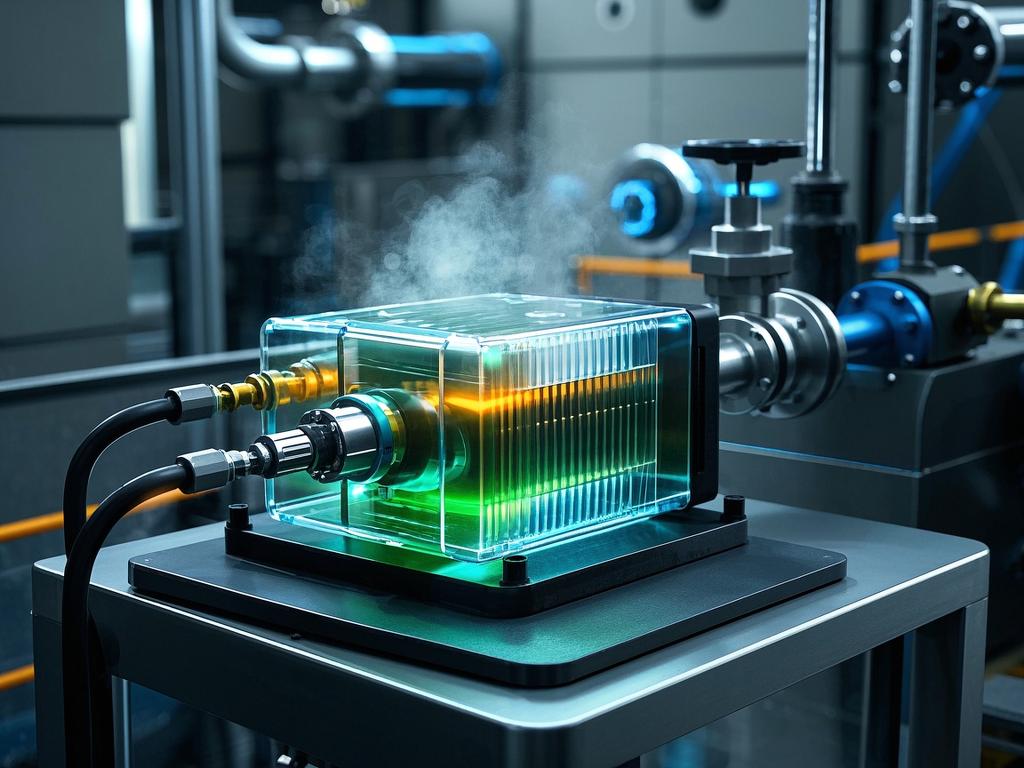
# Renewable Fuel Cells for Powering Industrial Processes: Driving Sustainable Manufacturing
In the ever-evolving landscape of industrial manufacturing, the pursuit of sustainability has emerged as a paramount concern. As the world grapples with the challenges of climate change and the depletion of finite resources, the need for innovative solutions to power industrial processes in an environmentally friendly manner has never been more urgent. Enter renewable fuel cells, a revolutionary technology that holds the key to driving sustainable manufacturing into the future.
Renewable fuel cells are electrochemical devices that convert the chemical energy of renewable fuels, such as hydrogen, methanol, or biofuels, directly into electrical energy. Unlike traditional fossil fuel-based power generation methods, fuel cells produce electricity with high efficiency and minimal emissions, making them an ideal solution for powering industrial processes. By harnessing the power of renewable fuels, fuel cells offer a clean and sustainable alternative to conventional energy sources, reducing greenhouse gas emissions and dependence on finite resources.
One of the key advantages of renewable fuel cells is their high efficiency. Fuel cells can convert up to 60% of the chemical energy of the fuel into electrical energy, compared to only 30-40% for traditional combustion engines. This high efficiency translates into significant energy savings and reduced operating costs for industrial manufacturers. Additionally, fuel cells operate quietly and produce very little waste heat, making them a more environmentally friendly and efficient option for powering industrial processes.
Another advantage of renewable fuel cells is their flexibility. Fuel cells can be designed in a variety of sizes and configurations, making them suitable for a wide range of industrial applications. Whether it's powering a small-scale manufacturing facility or a large industrial complex, fuel cells can provide a reliable and sustainable source of electricity. Moreover, fuel cells can be easily integrated with other renewable energy sources, such as solar and wind power, to create a hybrid energy system that maximizes the use of renewable energy.
The use of renewable fuel cells in industrial manufacturing also offers significant environmental benefits. By replacing traditional fossil fuel-based power generation methods with fuel cells, industrial manufacturers can reduce their greenhouse gas emissions and contribute to the global effort to combat climate change. Additionally, fuel cells produce very little air pollution, improving air quality and reducing the health risks associated with traditional power generation methods.
Despite the many advantages of renewable fuel cells, their widespread adoption in industrial manufacturing has been relatively slow. One of the main challenges facing the adoption of fuel cells is the high cost of the technology. Fuel cells are still more expensive to produce and install than traditional power generation methods, making them less attractive to industrial manufacturers. However, as the technology continues to evolve and economies of scale are achieved, the cost of fuel cells is expected to decrease, making them more competitive in the market.
Another challenge facing the adoption of fuel cells is the lack of infrastructure. Unlike traditional power generation methods, which are supported by a well-developed infrastructure of power plants, transmission lines, and distribution networks, fuel cells require a new infrastructure of fuel production, storage, and distribution. This lack of infrastructure makes it difficult for industrial manufacturers to access and use fuel cells, limiting their widespread adoption.
Despite these challenges, there is growing interest in the use of renewable fuel cells in industrial manufacturing. Many industrial manufacturers are recognizing the potential benefits of fuel cells and are investing in research and development to explore their use in their operations. Additionally, governments around the world are implementing policies and incentives to promote the adoption of renewable energy technologies, including fuel cells. These policies and incentives are helping to drive down the cost of fuel cells and increase their competitiveness in the market.
In conclusion, renewable fuel cells offer a revolutionary solution for powering industrial processes in an environmentally friendly and sustainable manner. With their high efficiency, flexibility, and environmental benefits, fuel cells have the potential to transform the way industrial manufacturing is done. While there are still challenges to overcome, such as the high cost of the technology and the lack of infrastructure, the growing interest in fuel cells and the supportive policies and incentives being implemented by governments around the world suggest that the future of sustainable manufacturing lies in the widespread adoption of renewable fuel cells. So, let's embrace this exciting technology and drive the transition to a more sustainable future for industrial manufacturing!
Are you ready to be a part of this green revolution? Share your thoughts and ideas in the comments below! Let's start a conversation about how we can all contribute to a more sustainable future through the use of renewable fuel cells. And don't forget to spread the word! Share this article with your friends, colleagues, and industry peers to raise awareness about the potential of renewable fuel cells in industrial manufacturing. Together, we can make a difference!

